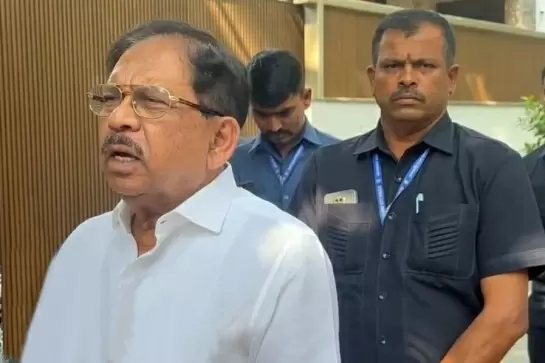Disaster strikes when political analysis is half-baked
24-November-2019
If war is too serious a business to be left in the generals so should former bureaucrats without adequate knowledge stay away from political analyses and national security.
Two recent books are proof of this.
The first is "India's Lost Frontier - The Story of the North-West Frontier of Pakistan", by Raghvendra Singh, a retired civil servant who has served as the Secretary of the Ministry of Culture and the Ministry of Textiles and for whom Museology and Conservation are of particular interest.
Now, here's the catch: The blurb declares that "in this exhaustive study of the NWFP and its adjoining area of Afghanistan, Raghvendra Singh argues that with an increasingly powerful China knocking on India's door, it is imperative to recognise that the docile acceptance of NWFP's loss in 1947 may have serious consequences for India's security in times to come".
Then, the back jacket declares: "Was it in Britian's strategic interest to partition India? Was it also not in its interest that the NWFP and Baluchistan, the two frontier provinces of India, join Pakistan? Why then, even after more than seven decades of India's independence, do we still question the inevitability of Partition?"
Sounds contradictory, doesn't it but still, I decided to wade through 467 pages of text spread over 16 chapters but emerged none the wiser. There's reams of information on the NWFP, the principal players - Mohammad Ali Jinnah, Khan Abdul Ghaffar Khan, Mahatma Gandhi, Jawaharlal Nehru and Viceroy Mountbatten et al - but that's it. The premise of Congress laxity is not fleshed out. In fact, there are more questions raised than are answered and so I addressed a lengthy email to the author:
"Pardon my ignorance but it seems to me that while the British were solidly behind Jinnah in giving him what they wanted, a similar situation did not exist when it came to Congress leaders. It's quite clear what Whitehall's thinking (as of Churchill) was on NWFP's status. So, no matter how forceful the Congress demand could have been, there was no chance of this happening.
"Mountbatten himself was for the NWFP going to Pakistan, as detailed from page 167 onward, and reinforced on page 180: Mountbatten felt vindicated with the declaration of the referendum results....
"A look at the map shows that NWFP being a part of India would have been practical only if the entire J&K also was. Given that the British were hellbent on creating trouble in Kashmir before they left, it was hardly likely they would agree to a Congress demand for the NWFP being a part of India.
"Now, consider this para on page 3: The idea mooted in the India Office paper (on partition) was of at least two Pakistan's, with no federal union, however loose, The paper was essentially an exercise in assessing the consequences of this division. If India's economic unity broke, so would the largest free trade area in the world. Calcutta was predicted to emerge as a major bone of contention between India and Pakistan.
"Had the NWFP become a part of India, this economic unity would have remained intact as would have the free trade area ranging from Burma to Afghanistan and beyond.
"Page 444 has the following line: That Britain may one day withdraw from India was already being mentioned in some quarters in the mid-1930s. What was then to become of Afghanistan (the buffer state) and the Hindu Kush? It certainly would not be handed to India on a platter!
"Given all this, its rather difficult to accept the premise (in the blurb) that with an increasingly powerful China knocking on India's door, it is imperative to recognise that the docile acceptance of NWFP's loss in 1947 may have serious consequences for India's security in times to come.
"Was there ever a slim chance that the NWFP would go to India?
"Dear Sir, as I stated at the beginning the purpose of this mail is to educate myself. I seek your help on this because as of now, I find it difficult to review the book: Where do I begin and where do I end?"
Four days later I got a mail asking me to call, which I did and was left even more confused. So I asked the author to concisely state his theory. I also posed three questions: How did this book come about; the research that went into it; and the author's plans for the future on the writing and other fronts?
Two reminders were sent but there has been no response.
A similar deficiency arose with regard to "Pakistan - The Balochistan Conundrum" by Tilak Devasher, who took to writing after retiring from the Cabinet Secretariat.
This resulted in an e-mail:
"I have a major dilemma after reading Pakistan: The Balochistan Conundrum:
"On one level there is the alienation of the Baloch people because Pakistan has never tried to integrate them and is dealing with a political issue that has resulted in a 50-year insurgency with military means.
"Then, there is the question of whether Balochistan will break away. This is negatived on the grounds that inter alia there is no middle class and no international support.
"Then, there is the Chinese factor - Gwadar and the CPEC. This alone will ensure that Balochistan will stay a part of Pakistan, on one level, but hasn't addressed the sense of deprivation the people of the province feel.
"Pardon me if I missed it but this factor doesn't come through in the book and how this is a double whammy - not only will this strangulate Balochistan and make it a virtual province of China but it will strangulate Pakistan itself and lead to a Hambantota-like situation.
"Thus, for Pakistan, is it a Balochistan conundrum or a Chinese conundrum?"
There has been no reply.
I rest my case.IANS
Khushbu Sundar’s X Account Hacked; Actress Seeks Urgent Help
ED Raids Bengaluru Dog Breeder Who Claimed to Own Rs 50 Crore Wolf-Dog
Raj Thackeray Slams Hindi Imposition in Maharashtra Schools, Warns of Statewide Protests
That Sassy Thing Raises ₹6 Crore to Disrupt Women’s Sexual Wellness Space
Suspended Kerala IAS Officer Prasanth Raises Promotion Demand During Hearing








